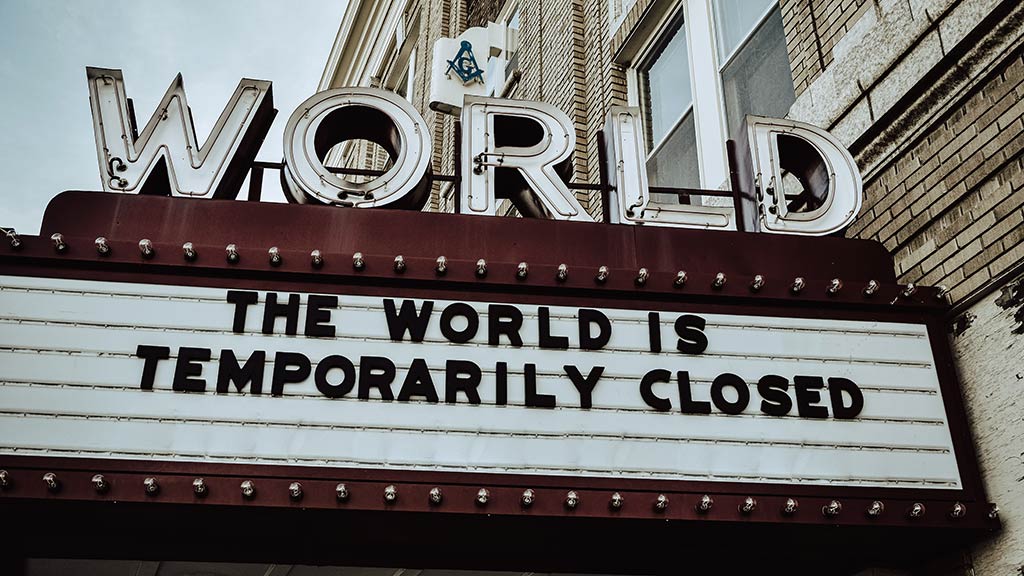Opportunity Knocks: The Future of the Event Industry
Brenda Eckler, DBA-ABD, CMP, CHE is an associate professor in JWU's College of Hospitality Management. She brings over 20 years of experience in the events industry and expertise in accounting, gaming operations, special event protocols, wedding planning, and more to the courses she teaches in the Sport, Entertainment, Event — Management program. She analyzed the latest data to determine what to expect for the future of the event industry as we begin to emerge from the COVID pandemic.
“When one door closes another door opens, but we often look so long and so regretfully upon the closed door that we do not see the one which has opened for us.”
Numerous individuals have utilized this quote, including Alexander Graham Bell and Helen Keller. Many more will see the value in these words in the near future, particularly in the event industry. Let’s look further.
 Photo by Edwin Hooper on Unsplash
Photo by Edwin Hooper on Unsplash
According to Allied Market Research, the event industry size was $1,135.4 billion in 2019 and was expected to reach $1,552.9 billion by 2028, a compound growth rate of 11.2%. “Events refer to public gathering of populace art at a determined time and place. The purpose for staging an event can be an increase in business profitability, celebratory, entertainment, and community causes among others. The most popular events include conferences & exhibitions, corporate events & seminars, promotion & fundraising, music & art performance, sports, festival, trade shows, and product launches. The key stakeholders within the events market are corporate organizations, public organizations & NGOs” (Allied Market Research).
The largest growth was expected to be the Music, Sporting and Corporate Event, and Seminar categories. Clearly, the recent pandemic has had a profound negative impact on the event industry, communities, governments, research organizations, attendees, employees and all hospitality sectors as events utilize all hospitality services.
The Pandemic's Impact on the Hospitality Industry
“When one door closes…”
This pandemic has had a profound effect on the event industry as a whole. Most events have been canceled or postponed due to the pandemic. A recent survey conducted by Meeting Professional International (MPI) and Event MB found the following:
- 96% of event professionals have experienced cancellations due to the COVID-19 pandemic.
- More than 50% of planners and 73% of suppliers expect a negative economic impact on their business in the next 12 months.
- 21% feel that a negative economic impact will be felt in the next 24 months (MPI).
“The duration of the virus outbreak remains a key factor in assessing the overall impact of the pandemic, however, the global events industry is likely to stabilize after 2023” (Allied Market Research). Looking further, millions have been laid off or furloughed, nearly 21%. An additional 52.4% reported some loss of income. Many have departed the industry on their own accord (Event MB). Direct employment in the event industry is nearly 2.5 million, indirect employment of 1.5 million, and 1.9 million in induced jobs. $95.6 billion in salaries and wages comes from the meeting industry alone (Convene). Clearly, there is a very large number of event professionals and communities who have been affected by this pandemic.
But, there is light at the end of the tunnel.
Hospitality's Rebound
“…another door opens…”
Those who have remained in the industry have been forced to convert a face-to-face event to a virtual one. As of November 2020, approximately 73% of event professionals had transitioned events from a face-to-face format to a virtual format. Nearly 27% have been unable to do so. But, a transition has not come easy. “There was this huge knowledge gap because I’d never had to run a virtual event before,” said Sabrina Meyes, co-founder of Two Social Media Chicks (EventMB).
There is a steep learning curve associated with transforming a face-to-face event into a virtual one. Many departed the industry due to this barrier, as they are not skilled enough in the technology to provide a rich experience to attendees. Only 53% of respondents were familiar with technology or considered themselves savvy.
 Photo by Chris Montgomery on Unsplash
Photo by Chris Montgomery on Unsplash
The professionals believe virtual and hybrid are here to stay for quite some time as confidence in the safety of face-to-face events is unknown. It is not known when government regulations will stabilize in reference to capacity, when travel restrictions will be lifted, and when the industry’s reputation as being a safe and healthy environment will be restored. According to the Event MB survey, respondents said they do not expect the industry to begin smaller, in-person events until mid to late 2021. Larger-scale events are projected to begin in 2023 as it takes months to plan a large-scale event. Large international events may not be viable until 2024 due to international travel restrictions.
According to the US Department of Labor, the industry growth outlook for convention, meeting, and event planning is still strong — higher than average at 8%. As stated, hundreds of thousands of pre-pandemic event industry employees have been laid off or furloughed. Hundreds of thousands have left the industry entirely. This is not limited to the event industry; it includes much of the hospitality industry professions. This leaves a rather large gap in potential employees in the event and hospitality industries in the future. The event industry will return to the glory days of pre-pandemic, but not in the very near future. With industry growth still expected, it’s an opportune time for potential and experienced professionals to skill and reskill. It is unclear as to how many have taken this step at this time.
In the 20-21 academic year, I have had numerous event industry professionals who have decided to invest in themselves by returning to college and are attending courses presently. I am sure many professors in the College of Hospitality could attest to this as well. One door may have closed, but clearly, a new door has opened for event and hospitality potential and experienced industry professionals.



